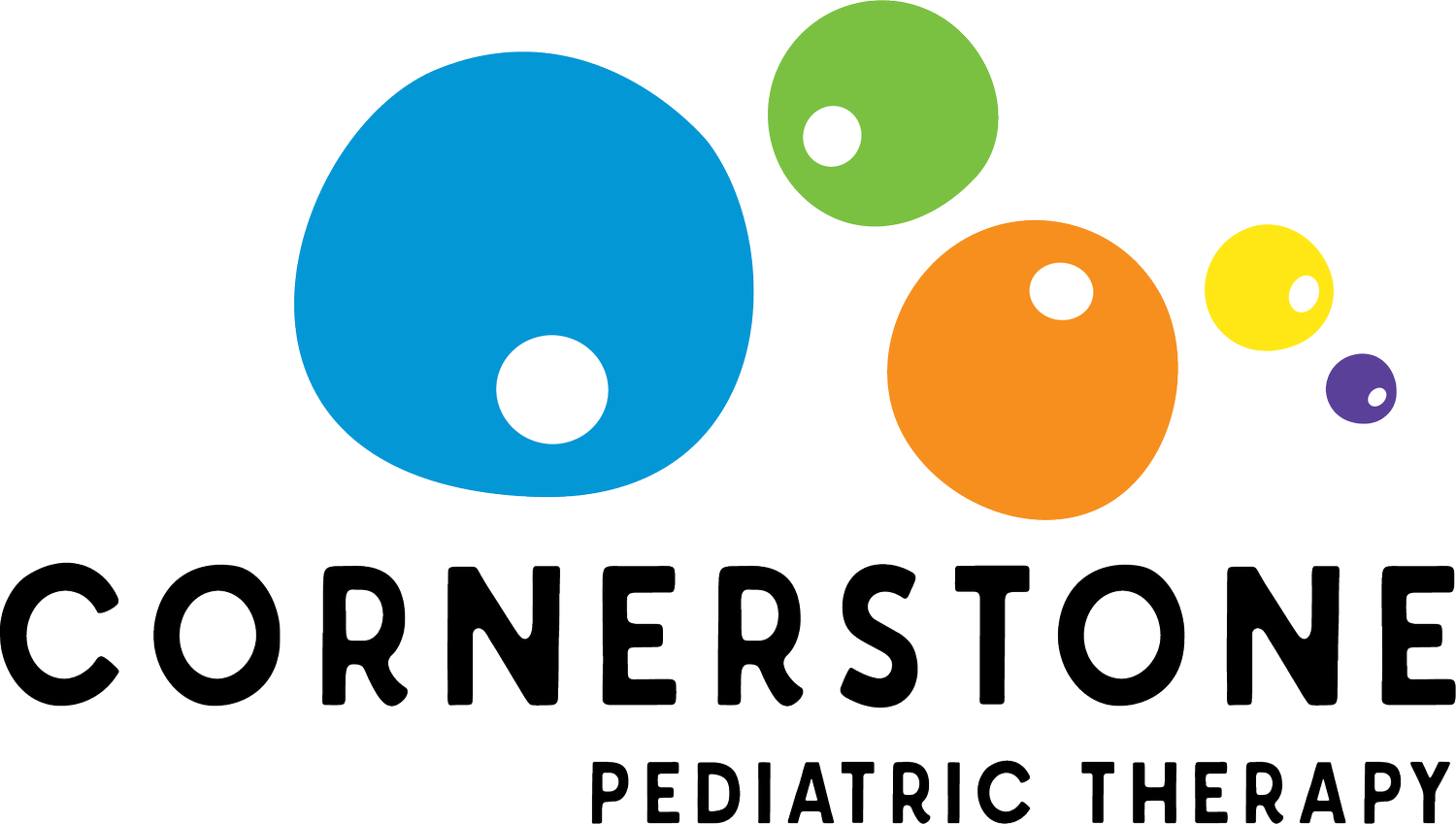BACK TO RESOURCES PHYSICIANS THERAPISTs
GETTING STARTED AT CORNERSTONE:
Follow the basic steps below in order to begin receiving services from Cornerstone Pediatric Therapy. If you have any questions, please contact our Intake and Processing Director, Ana McGee, at amcgee@cornerstonepediatric.com.
Identify any concerns you might have regarding your child's progression and development.
Voice these concerns to your child's primary care physician.
Tell your child's primary care physician that you would like a referral sent to Cornerstone Pediatric Therapy to conduct an evaluation based on your concerns.
THRIVE
DallasChild, FortWorthChild, and NorthTexasChild are free monthly parenting magazines that address the concerns and needs of families, with a special focus on children from prenatal care through adolescence.
Connections Kids
Connections Kids is an annual publication that provides resource information to parents looking to discover information on how to better the lives of their children with special needs.
Special Needs Blog - Dallas Morning News
Created by The Dallas Morning News, this blog is run by people involved in the special needs community and can be used by parents and professionals seeking additional information and resources.
AUTISM RESOURCES
FEAT-NT - Families for Effective Autism Treatment North Texas
NAA-NT - National Autism Association of North Texas
Act Early and Talk to Your Child's Pediatrician if Your Child:
select age to view
2 months
• Doesn’t respond to loud sounds
• Doesn’t watch things as they move
• Doesn’t smile at people
• Doesn’t bring hands to mouth
• Can’t hold head up when pushing up when on tummy
4 months
• Doesn’t watch things as they move
• Doesn’t smile at people
• Can’t hold head steady
• Doesn’t coo or make sounds
• Doesn’t bring things to mouth
• Doesn’t push down with legs when feet are placed on a hard surface
• Has trouble moving one or both eyes in all directions
6 months
• Doesn’t try to get things that are in reach
• Shows no affection for caregivers
• Doesn’t respond to sounds around him/her
• Has difficulty getting things to mouth
• Doesn’t make vowel sounds (“ah”, “eh”, “oh”)
• Doesn’t roll over in either direction
• Doesn’t laugh or make squealing sounds
• Seems very stiff, with tight muscles
• Seems very floppy, like a rag doll
9 months
• Doesn’t bear weight on legs with support
• Doesn’t sit with help
• Doesn’t babble (“mama”, “baba”, “dada”)
• Doesn’t play any games involving back-and-forth play
• Doesn’t respond to own name
• Doesn’t seem to recognize familiar people
• Doesn’t look where you point
• Doesn’t transfer toys from one hand to the other
1 year
• Doesn’t crawl
• Can’t stand when supported
• Doesn’t search for things that he/she sees you hide
• Doesn’t say single words like “mama” or “dada”
• Doesn’t learn gestures like waving or shaking head
• Doesn’t point to things
• Loses skills he/she once had
18 months
• Doesn’t point to show things to others
• Can’t walk
• Doesn’t know what familiar things are for
• Doesn’t copy others
• Doesn’t gain new words
• Doesn’t have at least 6 words
• Doesn’t notice or mind when a caregiver leaves or returns
• Loses skills he/she once had
2 years
• Doesn’t use 2-word phrases (for example, “drink milk”)
• Doesn’t know what to do with common things, like a brush, phone, fork, spoon
• Doesn’t copy actions and words
• Doesn’t follow simple instructions
• Doesn’t walk steadily
• Loses skills he/she once had
3 years
• Falls down a lot or has trouble with stairs
• Drools or has very unclear speech
• Can’t work simple toys (such as peg boards, simple puzzles, turning handle)
• Doesn’t speak in sentences
• Doesn’t understand simple instructions
• Doesn’t play pretend or make-believe
• Doesn’t want to play with other children or with toys
• Doesn’t make eye contact
• Loses skills he/she once had
4 years
• Can’t jump in place
• Has trouble scribbling
• Shows no interest in interactive games or make-believe
• Ignores other children or doesn’t respond to people outside the family
• Resists dressing, sleeping, and using the toilet
• Can’t retell a favorite story
• Doesn’t follow 3-part commands
• Doesn’t understand “same” and “different”
• Doesn’t use “me” and “you” correctly
• Speaks unclearly
• Loses skills he/she once had
5 years
• Doesn’t show a wide range of emotions
• Shows extreme behavior (unusually fearful, aggressive, shy or sad)
• Unusually withdrawn and not active
• Is easily distracted, has trouble focusing on one activity for more than 5 minutes
• Doesn’t respond to people, or responds only superficially
• Can’t tell what’s real and what’s make-believe
• Doesn’t play a variety of games and activities
• Can’t give first and last name
• Doesn’t use plurals or past tense properly
• Doesn’t talk about daily activities or experiences
• Doesn’t draw pictures
• Can’t brush teeth, wash and dry hands, or get undressed without help
• Loses skills he/she once had
At Cornerstone, it is our goal to provide parents and therapists with valuable resources. We are listing these additional resources and we are simply acting as a conduit for information which may be beneficial to parents, families, clients, and professionals. Listing these organizations and/or services does not necessarily indicate the endorsement of Cornerstone Pediatric Therapy.

